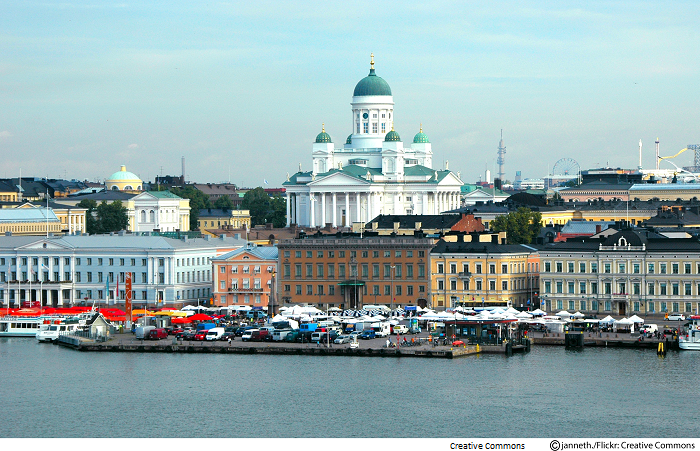Spotlight: Finland

In this new series, we will feature participating countries and their achievement and involvement in TIMSS and PIRLS.
Finland is renowned for its natural beauty, a land of picturesque lakes, a summertime midnight sun, and stunning Northern Lights in the depths of winter. Finland's educational system is also woven into its national identity, its reputation for academic excellence known throughout the world.
PIRLS 2011 showed that Finland is one of the countries with the best readers at the primary level – it ranked among the top three countries in that assessment. Other countries have looked upon Finland's school system as a model for success. Education officials and researchers there, however, have not grown complacent and look to uphold high literacy rates and improve any areas of weakness.
Jouni Välijärvi, Director of the Finnish Institute for Educational Research at the University of Jyväskylä, and Inga Arffman, a Senior Researcher at the institute and PIRLS Coordinator for Finland, reflected on what Finland has learned from PIRLS 2011 and what it hopes to get out of PIRLS 2016.
Read about the PIRLS NRC meeting in Finland and view a photo slideshow »

"The most interesting finding was differences between classes inside schools," said Välijärvi. "Basically, there shouldn’t be because we are stressing that comprehensive school model."
He said Finland has used findings from PIRLS 2011 in its present curriculum reform, striving to narrow the gender gap in achievement and push for greater academic engagement of boys. He pointed to a project called Joy of Reading that works to strengthen cooperation between schools and libraries. The project also seeks new reading materials that may appeal to boys, and authors visit schools and talk about their work.

When asked what factors in Finland have contributed to its academic success, Arffman pointed to the rigorous and lengthy training given to teachers and the cultural emphasis on equality.
"We are a very democratic country, and we want to give every student the same kind of opportunity to go to a good school,” she said. "We don’t have poor schools or bad schools, we don’t have elite schools. So even poor families, for example, they don’t need to worry what kind of education their children get, because every school is a good school, and every school has good teachers.”
Looking ahead, Välijärvi eagerly anticipates PIRLS 2016 results, saying, "The trend information is becoming more and more important: when we have a longer perspective, and when we go into more detail of what happens in sub-domains.
"What I see as extremely important both in TIMSS and PIRLS is ePIRLS, and how little by little the computer-based assessment is the future," he continued. He is interested in how to utilize computerized assessments to motivate and engage children, and in analyzing the results and processes of how students are behaving.
Arffman also stressed the importance of reading literacy for children.
"Children who can’t read, they are at the risk of getting marginalized," she said. "It’s a sad thing, but it’s also bad for the community, for any country. The country suffers, so it has huge consequences if somebody can’t read. Reading literacy is absolutely the most important individual skill you have to have to live in modern society."



